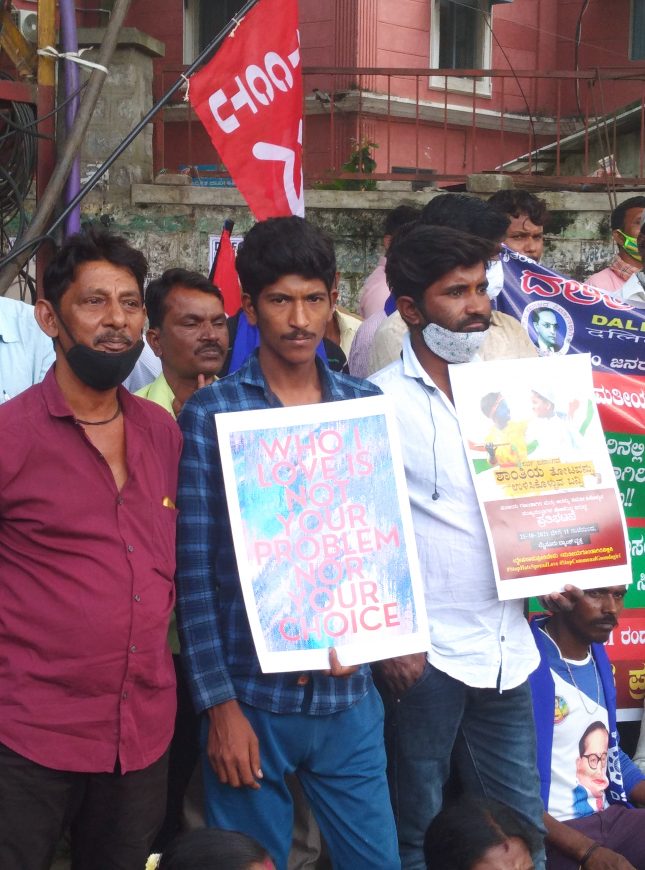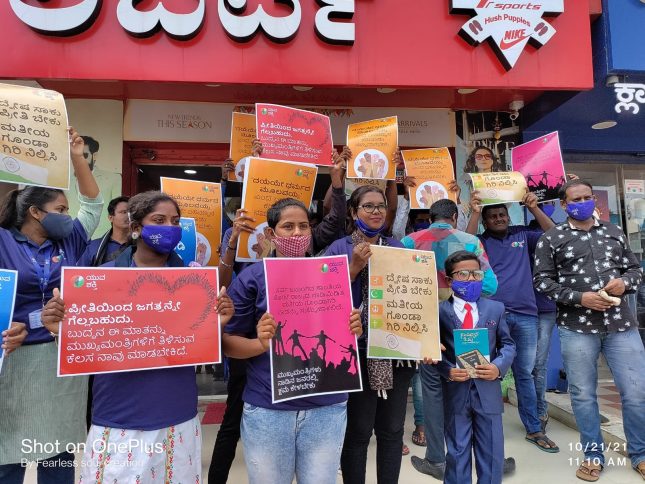This period has made it obvious that we are much more connected than we think and that artificial barriers created because of race, gender, caste, class, religion, geography, physical ability, sexual orientation etc. are not so clear cut in the face of a pandemic. Of course the pandemic also laid bare for us the huge inequities that exist and how some communities have been thrown into the deep end because of the pandemic and how health and healthcare access is deeply determined by one’s social location.
In India, poverty, nutrition, caste, gender, religion, geography have all influenced outcomes due to Covid. Who gets beds in hospitals? Who can pay the exorbitant bills? Who doesn’t get discriminated and who does? All these have been made very evident.
In this period the response of the volunteers across the country was reassuring.
People reached out to each other in solidarity, sharing money, resources, rations. This energy and feeling of solidarity should be built upon. Just solidarity in a charity mode is also not sufficient. More deeper discussions need to be had on how to break intergenerational cycles of oppression that keep some communities forever in servitude.
Lessons from across the globe have to be shared and reshared, translated across languages, and the narrative has to change from homogenous, alarmist models, to the rich diversity that different communities have to offer. That its ok for one group to be completely different from another and explore their own path while learning and absorbing the best of other cultures.
We don’t need racist/casteist owned corporates telling us whats good for us, what we should do, what we should eat, whats good for our planet and our children, our bodies, how we should labour, how we should be entertained and deciding who deserves dignity and resources over someone else.
More info on this collaboration: Over the course of our As We Re/Gather project this year, we invited folks to share their stories and experiences emerging from the last 18 months amid the ongoing COVID-19 pandemic, attacks on democracy, and uprisings to defend Black lives.
In the U.S., we have experienced our global connectedness and interdependency in new ways, while systems of white supremacy and globally racialized capitalism have exploited conditions to reinforce false borders and boundaries, deepening existing crises with further harm on public health internationally.
Communities across the globe are being impacted by the same root causes and global systems, but white supremacy, capitalism, and imperialism have very different consequences for communities of color and in countries fighting colonization.
We collaborated with EqualHealth’s Campaign Against Racism international chapters to learn and share more about the current conditions, what frontline communities are doing to resist and build, and to inform strategies to build solidarity and power across geography and the Global South.
Learn more about EqualHealth’s Campaign Against Racism here – http://www.equalhealth.org/about. We hope you’ll engage with these stories and this important work, share what folks are doing on the ground to fight oppressive sociopolitical and economic systems in your communities, take action to hold government officials and corporations accountable, and stay tuned for more opportunities brewing to link our struggles and strategies across the globe.


